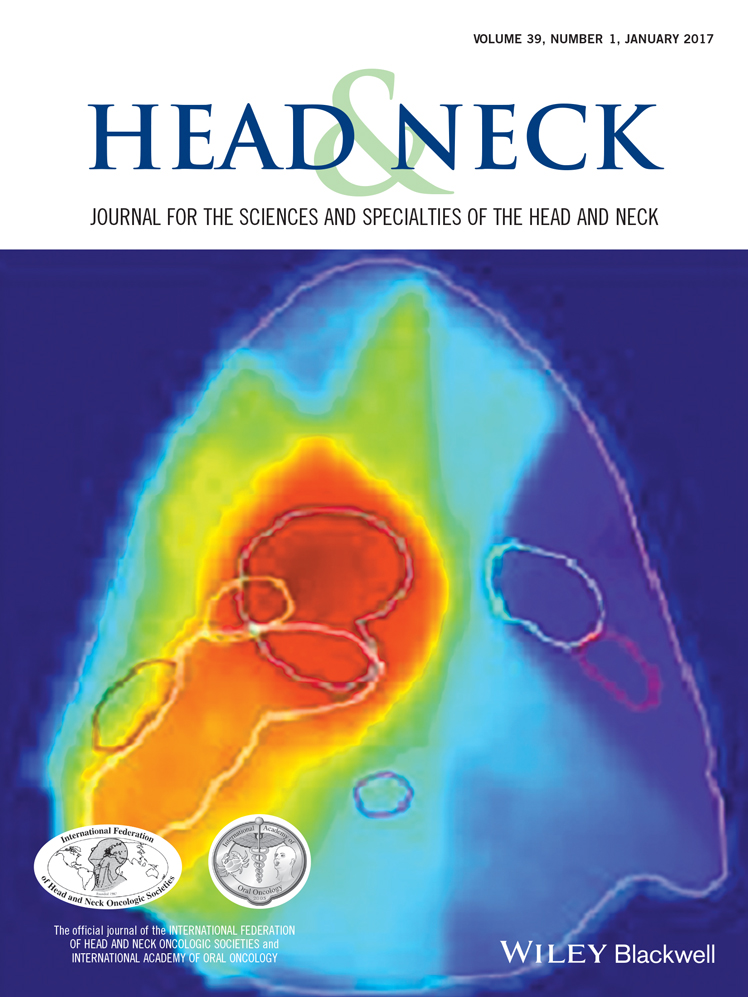Excessive intravenous fluid therapy in head and neck cancer surgery
ABSTRACT
Background
The purpose of this retrospective study was to present our assessment of modifiable perioperative factors for major cardiac and cerebrovascular events (MACCE).
Methods
This study included an unselected cohort of patients with head and neck cancer (n = 456) treated in Turku University Hospital between 1999 and 2008.
Results
Perioperative and postoperative univariate predictors of MACCE at 30-day follow-up were: total amount of fluids (during 24 hours) over 4000 mL, any red blood cell (RBC) infusion, treatment in the intensive care unit (ICU), tracheostomy, and microvascular reconstruction surgery. Median time from operation to MACCE was 3 days. Patients receiving >4000 mL of fluids had MACCE more often compared with those receiving <4000 mL (10.8% vs 2.4%; p < .001, respectively). Moreover, every RBC unit transfused or every liter of fluid administered over 4000 mL/24h increased the risk of MACCE 18% per unit/liter, respectively.
Conclusion
Patients with head and neck cancer receiving excessive intravenous fluid administration perioperatively and postoperatively are at high risk for cardiac complications, especially heart failure. © 2016 Wiley Periodicals, Inc. Head Neck 39: 37–41, 2017




